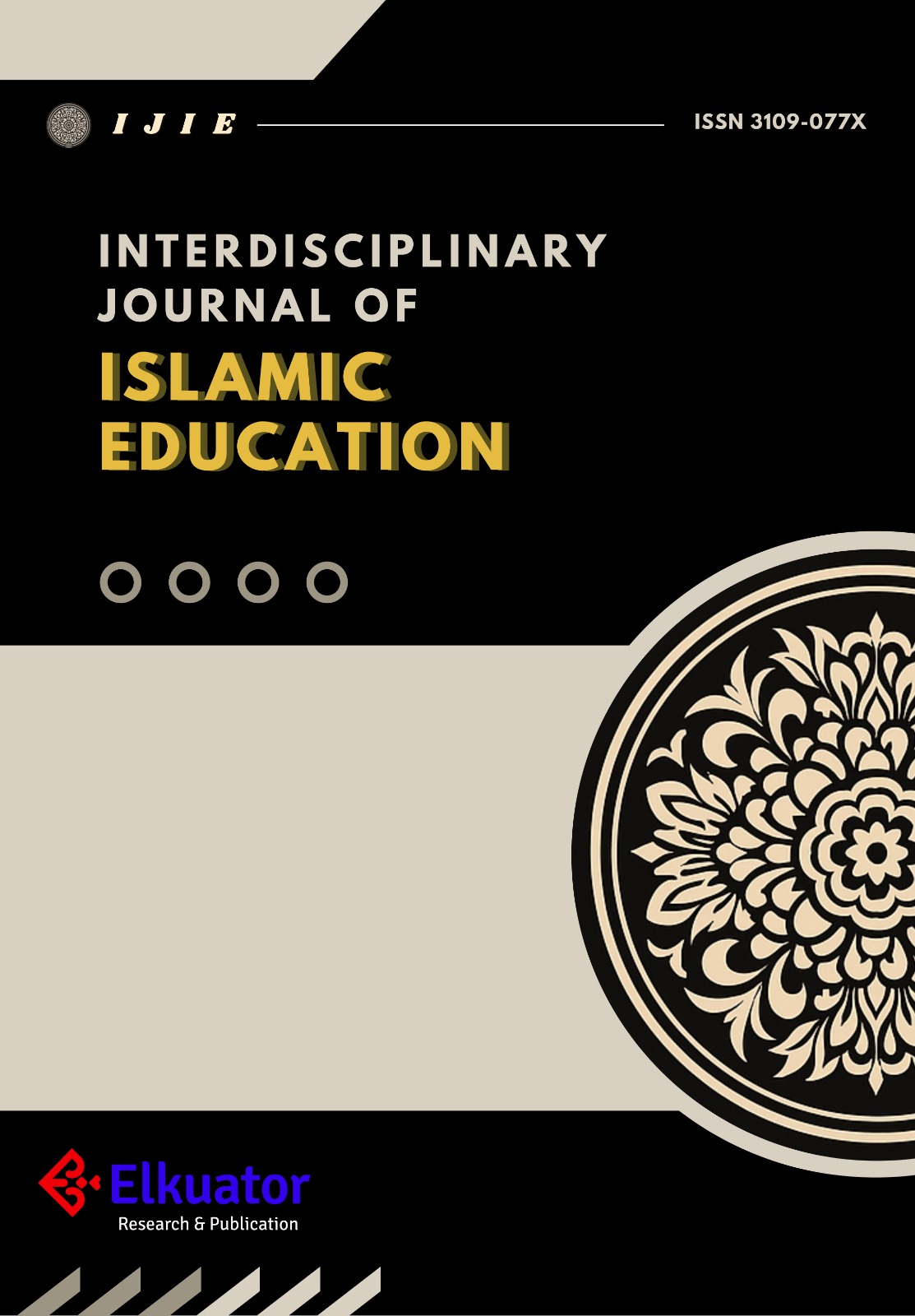Enhancing Learning Enthusiasm: The Relevance of Problem-Based Learning in English Language Instruction at MAN Bengkayang
DOI:
https://doi.org/10.24260/ijie.1.1.33Keywords:
Problem-Based Learning, Learning Enthusiasm, English Language Learning, Classroom Action Research, Student MotivationAbstract
This study aims to explore implementing the Problem-Based Learning (PBL) model in enhancing students' enthusiasm for learning English in the 10th grade at MAN Bengkayang. Before this study, student enthusiasm for English lessons at MAN Bengkayang was relatively low, with most students considering the subject challenging and tedious. This research employs a Classroom Action Research (CAR) approach conducted in two cycles. Each cycle involves planning, implementation, observation, and reflection to improve the quality of instruction. In the implementation of PBL, students are given real-world problems relevant to their lives to solve collaboratively, using English as a communication medium. The results of the study show that PBL can increase student engagement in learning and motivate them to participate in discussions and group presentations actively. Despite challenges in vocabulary mastery and pronunciation, the second cycle significantly improved student motivation and enthusiasm. Applying PBL successfully transformed students' perceptions of English from a boring subject into something more engaging and relevant.
References
Antara. (2023, Nopember). Riset sebut kemampuan bahasa Inggris masyarakat Indonesia masih rendah [Berita]. Antara. https://www.antaranews.com/berita/3845247/riset-sebut-kemampuan-bahasa-inggris-masyarakat-indonesia-masih-rendah
Arfianti, K., & Azmi, K. R. A. R. (2021). Self Regulated Learning(SRL): Skills in Improving Learning Motivation. KONSELI : Jurnal Bimbingan Dan Konseling (E-Journal), 8(2), 199–206. https://doi.org/10.24042/kons.v8i2.9958
Arief, abibah S., Ariyani, R., & Wulandari, S. (2016). Meningkatkan Motivasi Belajar Melalui Pendekatan Problem-Based Learning (PBL). Jurnal Pena Ilmiah, 1(1), 141–150. https://doi.org/10.23819/pi.v1i1.2945
Barrows, H. S., & Tamblyn, R. M. (1989). Problem-based learning (4. [print.]). Springer Publ. Co.
Brundiers, K., Wiek, A., & Redman, C. L. (2010). Real‐world Learning Opportunities in Sustainability: From Classroom Into the Real World. International Journal of Sustainability in Higher Education. https://doi.org/10.1108/14676371011077540
Dharma, B. A., Tasrikah, N., & Churiyah, M. (2020). Effectiveness of Problem Based Learning (PBL) Towards Learning Outcomes Through Critical Thinking Skills. Jurnal Ad’ministrare, 7(2), 235. https://doi.org/10.26858/ja.v7i2.15343
Ernawati, M. D. W., Haryanto, Harizon, Yusnidar, Qoidah, N. N., & Udhiyah, M. (2023). Analysis of Teacher Response to Problem Based Learning Model and Scaffolding Model in Science Subjects. Integrated Science Education Journal. https://doi.org/10.37251/isej.v4i3.733
Ernawati, M. D. W., Sudarmin, Asrial, A., & Haryanto. (2023). The Effect of Scaffolding-Based Problem-Based Learning on Creative Thinking Skills on Hormone Materials. Jurnal Pendidikan Sains Indonesia. https://doi.org/10.24815/jpsi.v11i1.26955
Gusman, H. B. (2023). The effectiveness of Problem-Based Learning (PBL) model in increasing students’ cognitive outcomes and learning motivation in Environmental Change Material. Jurnal Mangifera Edu, 8(1), 32–39. https://doi.org/10.31943/mangiferaedu.v8i1.172
Handayani, N., Muizz, A., Wahidin, W., & Nur, S. (2022). Implementation of a Problem-Based Learning (PBL) Model Assisted By Zoom Cloud Meeting in Improving High School Students’ Critical Thinking Skills and Learning Motivation on the Concept of Environmental Pollution. Edunity Kajian Ilmu Sosial Dan Pendidikan, 1(04), 223–237. https://doi.org/10.57096/edunity.v1i04.27
Hung, W. (2006). The 3C3R Model: A Conceptual Framework for Designing Problems in PBL. Interdisciplinary Journal of Problem-Based Learning. https://doi.org/10.7771/1541-5015.1006
Kumar, M., & Natarajan, U. (2007). A Problem‐based Learning Model: Showcasing an Educational Paradigm Shift. The Curriculum Journal. https://doi.org/10.1080/09585170701292216
Maslow, A. H. (1970). Motivation and personality (2nd ed). Harper & Row.
Noordzij, G., & Wijnia, L. (2020). The Role of Perceived Quality of Problems in the Association Between Achievement Goals and Motivation in Problem-based Learning. Interdisciplinary Journal of Problem-Based Learning, 14(1). https://doi.org/10.14434/ijpbl.v14i1.28593
Prahmana, R. C. I., Hartanto, D., Kusumaningtyas, D., Ali, R. M., & Arkanuddin, M. (2021). Community Radio-Based Blended Learning Model: A Promising Learning Model in Remote Area During Pandemic Era. Heliyon. https://doi.org/10.1016/j.heliyon.2021.e07511
Ryan, R. M., & Deci, E. L. (2018). Self-determination theory: Basic psychological needs in motivation, development, and wellness (Paperback edition). The Guilford Press.
Suprapto, E., Fahrizal, F., Priyono, P., & K., B. (2017). The Application of Problem-Based Learning Strategy to Increase High Order Thinking Skills of Senior Vocational School Students. International Education Studies, 10(6), 123. https://doi.org/10.5539/ies.v10n6p123
Yusnidar, Wiwik Ernawati, M. D., Kurniawan, D. A., Azzahra, M. Z., Putri, F. I., & Perdana, R. (2023). Analysis of Differences: Application of the Problem-Based Learning Model Integrated With Scaffolding. Jurnal Penelitian Pendidikan Ipa. https://doi.org/10.29303/jppipa.v9i12.6078
Downloads
Published
Issue
Section
Copyright and License
Copyright (c) 2025 Ridwan, Khotimah, Zaqi Rauf Setio Budi, Widya Sari Dewi, Feni Nurhaliza (Author)

This work is licensed under a Creative Commons Attribution-NonCommercial 4.0 International License.













